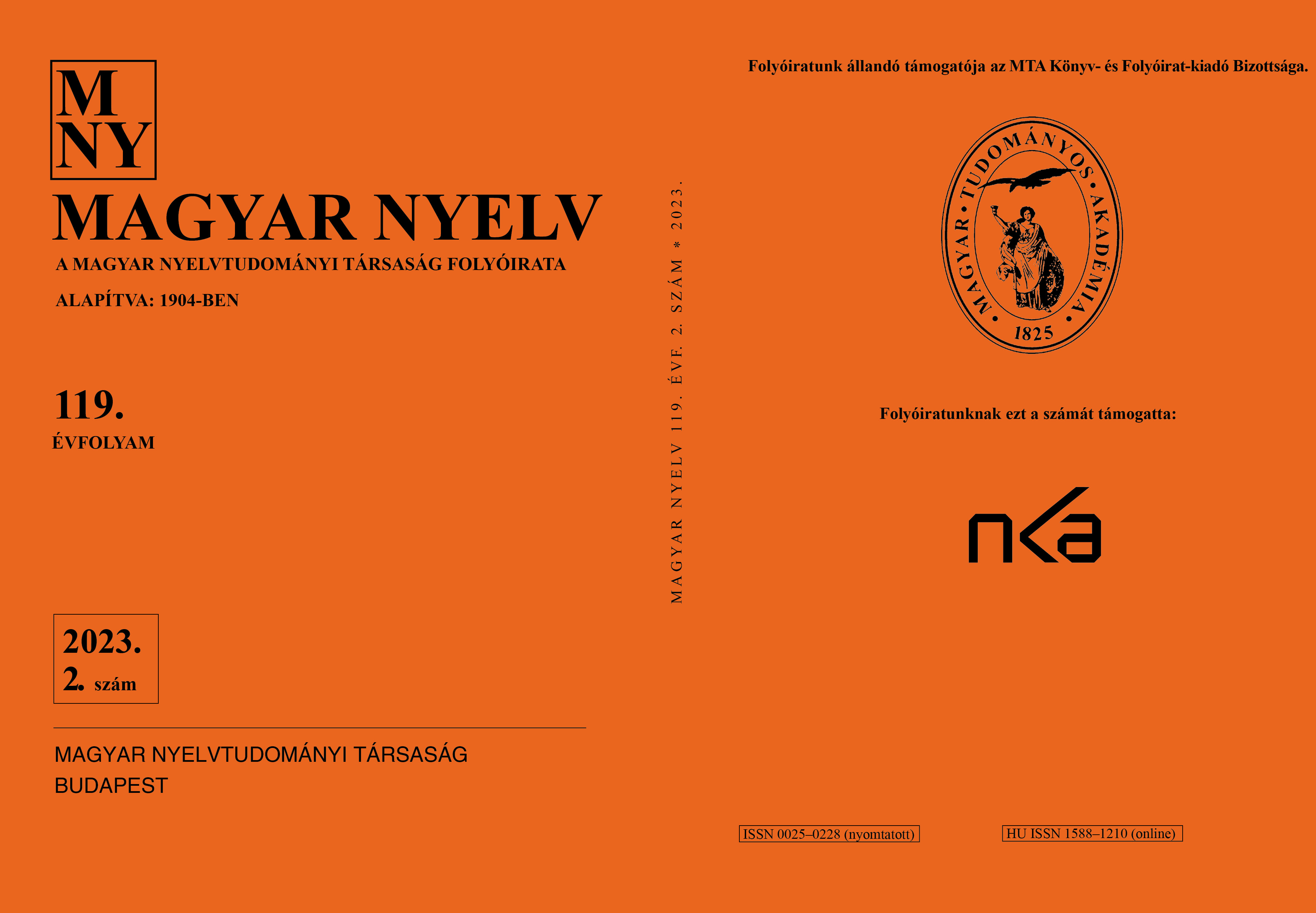On the history of the old food name bospor(os)
DOI:
https://doi.org/10.18349/MagyarNyelv.2023.2.195Keywords:
old food names, etymology, phonetic change, semantic changeAbstract
A sauce called bospor or bosporos was one of the favourite dishes of old Hungarian cuisine. The word, which is almost extinct today, has been attested in this language since the 16th century, and the study presents numerous sources in which it appears. In its first occurrences, it is mostly found as borspor or borsporos, so it is likely that it originated from this word combination (‘pepper’ + ‘powder(ed)’), and that the later forms bosporos, bocsporos and then, due to folk etymology, bocskoros ‘having sandals on’, came into existence as a result of phonetic changes. Although several authors doubt this etymology, their arguments are not convincing enough, therefore the paper argues that the current explanation of the origin of this food name should be accepted until more serious refutation is found. On the other hand, the author does not consider the solutions of contemporary Hungarian dictionaries regarding the lemmatization of these word forms to be very fortunate.
Downloads
Published
Issue
Section
License
Copyright (c) 2023 Tamás Forgács

This work is licensed under a Creative Commons Attribution-NonCommercial-NoDerivatives 4.0 International License.
Magyar Nyelv is a Diamond Open Access periodical. Documents can be freely downloaded and duplicated in an electronic format, and can be used unchanged and with due reference to the original source. Such use must not serve commercial purposes. In the case of any form of dissemination and use, Hungarian Copyright Act LXXVI/1999 and related laws are to be observed. The electronic version of the journal is subject to the regulations of CC BY-NC-ND (Creative Commons – Attribution-NonCommercial-NoDerivatives).
The journal permits its authors, at no cost and without any temporal limitation, to make pre-print copies of their manuscripts publicly available via email or in their own homepage or that of their institution, or in either closed or free-for-all repositories of their institutions/universities, or other non-profit websites, in the form accepted by the journal editor for publication and even containing amendments on the basis of reviewers’ comments. When the authors publicize their papers in this manner, they have to warn their readers that the manuscript at hand is not the final published version of the work. Once the paper has been published in a printed or online form, the authors are allowed (and advised) to use that (post-print) version for the above purposes. In that case, they have to indicate the exact location and other data of the journal publication. The authors retain the copyright of their papers; however, in the case of an occasional secondary publication, the bibliographical data of the first publication have to be included.



